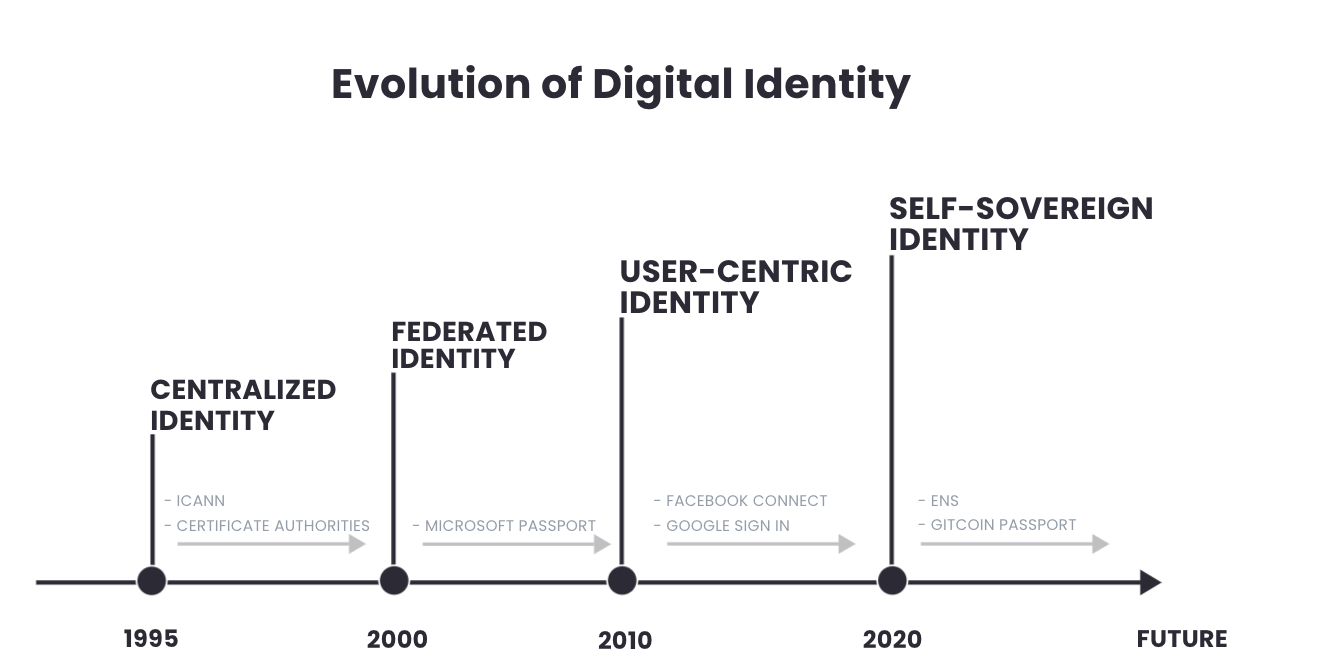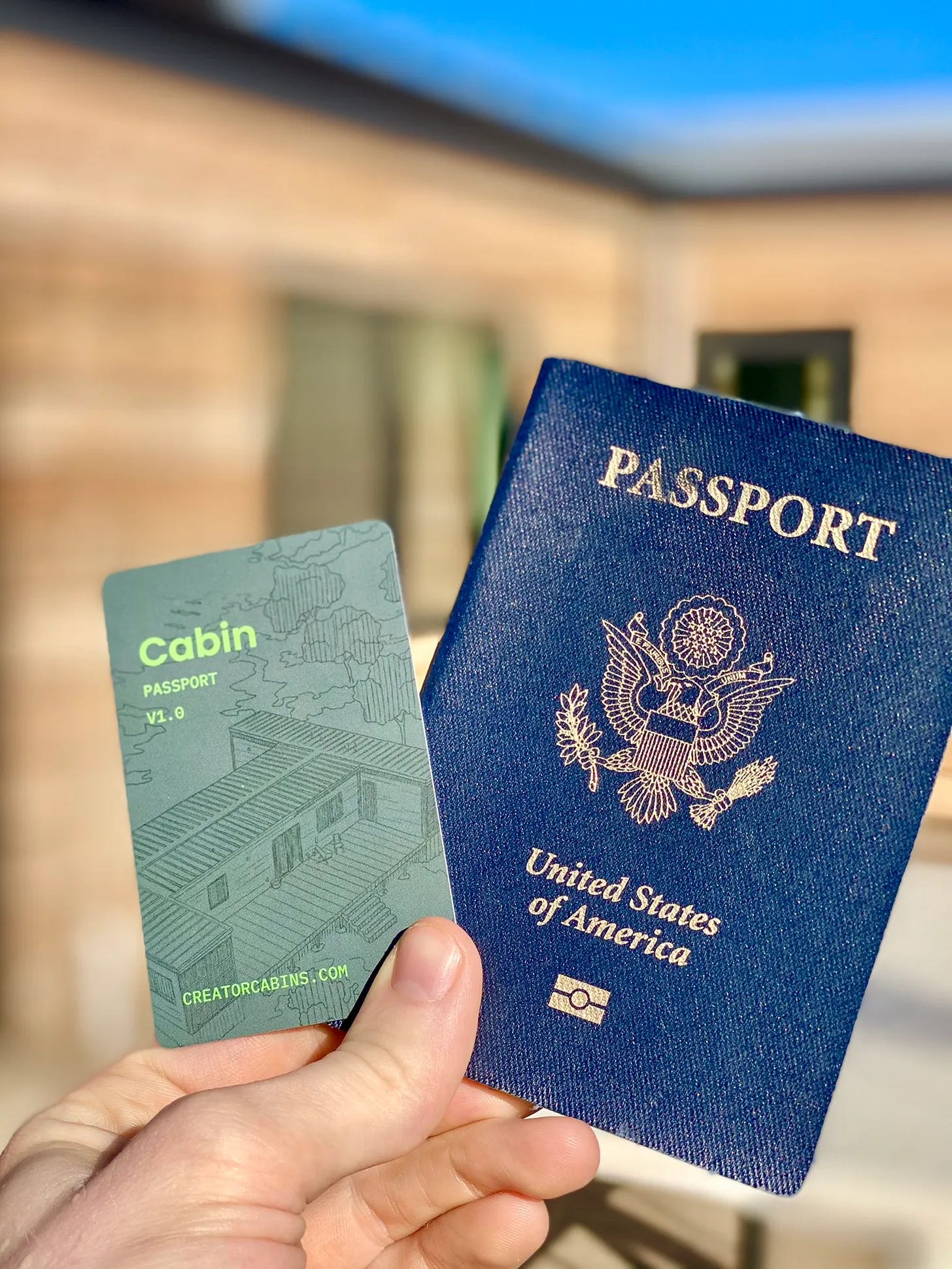This essay describes the current landscape of digital identity, solutions being explored by Startup Societies and a potential framework for The Network State.
“Identity will be the most valuable commodity for citizens in the future, and it will exist primarily online.”
– Eric Schmidt (2013)
Introduction
Identity refers to our sense of who we are as individuals and as members of social groups. It’s shaped by our beliefs, values and social interactions from which we form a sense of belonging. National identity arises from the culture of traditions, language or characteristics that comprise this collective system. A shared sense of national identity, or national consciousness, has thus historically been a crucial first step towards creating a nation.
In America, national consciousness is evolving. While previously we went bowling alone, we now seek out activities that can provide meaningful connection with others. With the Internet it’s more accessible than ever to find people that share similar interests and values. These relationships, often geographically dispersed, are ever more likely to occur in a subreddit or discord server than with a neighbor.
In modern society, identity is often tied to government-issued ID, such as a drivers license, social security card or national passport. For many citizens identity provides access to state programs that support their well-being and in some cases even the right to vote. For this reason, access to legal identity has become a fundamental goal for many nation states. This form of national ID, however, is limited by centralized issuance and control.
Self-sovereign identity is a defining aspect of network states and forms the basis of trust required to build reputation and credibility. It also opens the possibility to export one’s social graph when traveling between network states. Startup societies around the world have begun to experiment with new models of identity through digital citizenship. By issuing digital passports, aspiring network states are reimagining what it means to be a citizen in the digital age.
History and Challenges of Self-Sovereign Identity
The origins of digital identity can be traced to the beginning of the computer era, when user profiles were first transferred across networks. Sovereign identity requires that users are in complete control of their digital identity. This represents the fourth stage in the evolution of digital identity: centralized identity, federated identity, user-centric identity, and now self-sovereign identity.
Before recently, all systems would require a trusted third party for the exchange and distribution of issuers’ data. Despite visions to decentralize user-centric identity in the early 2000’s, final ownership remained with the entities that registered them.
Unfortunately, today that power is held by powerful institutions and corporations who have a history of arbitrarily closing user accounts. The previous epoch of user-centric identity systems has been riddled with large-scale data breaches, monetization of user data without consent (even if we clicked “yes” in the Terms & Conditions, we didn’t really have a choice anyway), and limited ability to access our data outside of their walled gardens. Will this time be different?
Principles of Self-Sovereign ID
In The Path to Self-Sovereign Identity, Christopher Allen (2016) offers a foundational framework for principles of SSID. Instead of summarizing these here, I will volunteer my own interpretation for The Network State.
- Human. Humans must be at the heart of the identity system. Users must have an independent existence and be able to protect against identity attacks.
- Available. It must be accessible. All people can easily use and inexpensively obtain the system for use of their identity.
- Permissionless. It requires no third party intermediary and no one can be excluded from the use of it.
- Interoperable. It can be compatible across different technology frameworks, including cross-chain and non-crypto based platforms.
- Privacy-Preserving. It should reveal a minimal amount of data about the user. Users may selectively disclose information if they choose; however, sharing of data must only occur with the consent of the user.
- Portable. The user remains in control of their identity and can easily transport data between network states and startup societies.
- Secure. User identity is protected from unauthorized access, corruption, or theft throughout its entire lifecycle.
- Open. Identity systems must be free and open-source. Anyone should be able to examine how the system works and contribute to keeping it updated.
These principles are at the heart of decentralized identity. An identity system for the network state should account for these critical design choices.
The State of Identity in The Network State
Unbundling of Identity
The Internet brought The Great Unbundling. Industries from music to television to finance have been disrupted by reducing the cost of distribution to zero. Nation states have long had a monopoly on legitimate means of movement, particularly across international boundaries. In giving permission to travel modern passports provide freedom of movement between states. A critical feature of this is that citizens have become dependent on the state for possession of their “identity”.
The unbundling of identity has started. Startup Societies are experimenting with new forms of identity through Citizen Passports – digital badges that provide access, certifications and status to its members. The key difference, according to Balaji, is that “in the network state, every person can in principle be a member of more than one state, just as they can be holders of more than one cryptocurrency, or be users of more than one social network.” Just as in nation states, this could provide legitimate means of entry to properties in the network state.
Citizen Passports as Social Capital
Citizen Passports provide a form of social capital. The term social capital refers to the positive product of human interaction that allows individuals to work collaboratively toward a common purpose. It helps build trust and creates opportunities for more advanced interactions that require reputation.
Cabin is an example of a network city that has started issuing digital passports to “serve as an IRL vibe check by neighborhoods, residents and the broader web3 ecosystem.” Cabin members can receive stamps that represent: skills verified within the community, roles and responsibilities held in the DAO, participation in network activities, or any other credentials people want to track.
As someone who recently received a Cabin passport after completing a Build Week, these benefits resonate with me. I feel more inclined to trust others who have received these credentials, knowing they have been verified by the community.
Other notable examples of citizenship NFTs include:
- Afropolitan is building a digital nation for people of the African diaspora. They describe their passport as a “private club membership with cultural and educational experiences, but made much more powerful by the opportunity to create an impact with like-minded builders.” Benefits of Afropolitan citizenship include: access to the network and peer support groups, private seminars and meetups, and a members-only platform for social networking.
- Build Cities is a protocol for startup cities. They’re building a platform for connection and social discovery in cities. Access to Build_Hubs will be issued through passport NFTs.
- CityDAO is building an on-chain city. Citizens participate in governance of the network and receive access to private channels. Anyone can earn citizenship by joining a guild or by purchasing an NFT on the secondary market.
This is only the beginning. In the future you may be able to receive a Praxis visitor visa or permanent residency to Prospera. I’m excited to see how these experiments unfold.
A Framework for Network State Passports
A digital passport for The Network State could unify on-chain and off-chain credentials to form a complete social graph. Comparable to a physical wallet, it may hold various claims about yourself, such as bank cards, licenses and service cards. It may consist of: Citizenship NFTs, ENS, Github, Twitter, Proof of Humanity, and more.
Use Cases for Identity in The Network State
Identity unlocks a wide range of applications for web3 that enable a much richer ecosystem of interactions. Here are a few examples of how an identity system can solve key problems that exist today:
- Governance: Passports enable participants to help shape the future of the network by voting in governance decisions. A digital passport can also enable 1 human = 1 vote use cases, which may be necessary to move beyond coin holder voting.
- Credentials: Digital credentials are certificates issued by a party to prove someone’s claim, qualification, or achievement. They allow users to build a reputation online, even while working under a pseudonym, with an on-chain record of work and accomplishments. This could help future citizens of The Network State enter into employment contracts, establish provenance, or issue different levels of membership.
- Access: Proof-of-hold access controls provide entry to physical and digital spaces. This helps establish the legitimate boundaries that form a network state.
- Quadratic Funding: QF is a more democratic and scalable form of funding for public goods. It’s a model where funds from a government or institution match individual contributions to a project, prioritizing projects based on the number of people who contributed. There are already examples of projects experimenting with quadratic funding for cities. Another benefit is that passports could help improve sybil resistance, which further enhances the integrity of the system.
- Payments: Sovereign identity could be a big unlock for peer-to-peer payments. Instead of sending money to an address with no verifiable claims, you would be more confident that you are sending to the intended recipient. It increases trust in the exchange.
- Social Networks: The Network State passport could be at the heart of new social networks that offer more localized discussions and information sharing. By proving our humanity, we may even see a return to civility that more closely resembles our real social networks today.
Should Network State Passports be tradable?
Given citizenship confers status, reputation and credibility, making your passport NFT tradable may defeat the purpose, since it would not be able to accrue trust. Trust is the foundation of a successful society. It underpins both our personal and business relationships by allowing people and communities to coordinate together. The core identity protocol, including credentials, should not be tradable; instead, we might look toward non-transferrable soulbound tokens to enable Decentralized Society.
Conclusion
Identity infrastructure is a public good and it is essential for the advancement of diplomatically-recognized network states. A passport for The Network State could, in the future, offer an alternative to national ID systems. I believe self-sovereign identity helps form a sense of national consciousness by creating a record of events, providing access to shared spaces, and improving opportunities for civic engagement through participation in governance. If network states are successful in gaining diplomatic recognition, this is one part of the stack that will need to be developed.
Thanks for reading the first edition of Sovereign Cities. This is the first post in a series where I’ll explore the future of cities and concepts related to The Network State. I would love to hear feedback via comments, DM or email, especially if you are building in this space.
Acknowledgements
Thanks to Balaji for ideas used in the article and his foundational work on The Network State; Angelo Alessio and Leeor Shimron for reviewing this post; all of the startup societies that I’ve interacted with that have influenced my thinking on the subject; and Gitcoin and Spruce ID for their prior work on decentralized identity.





